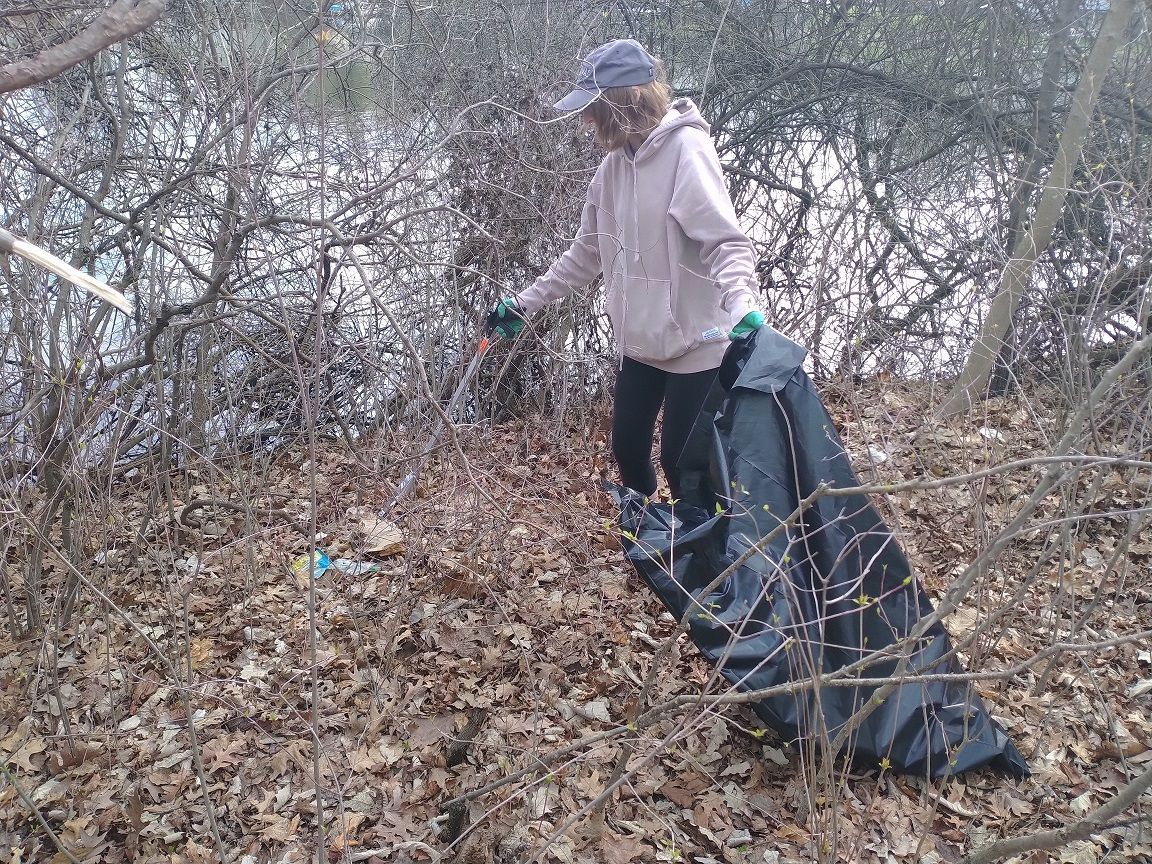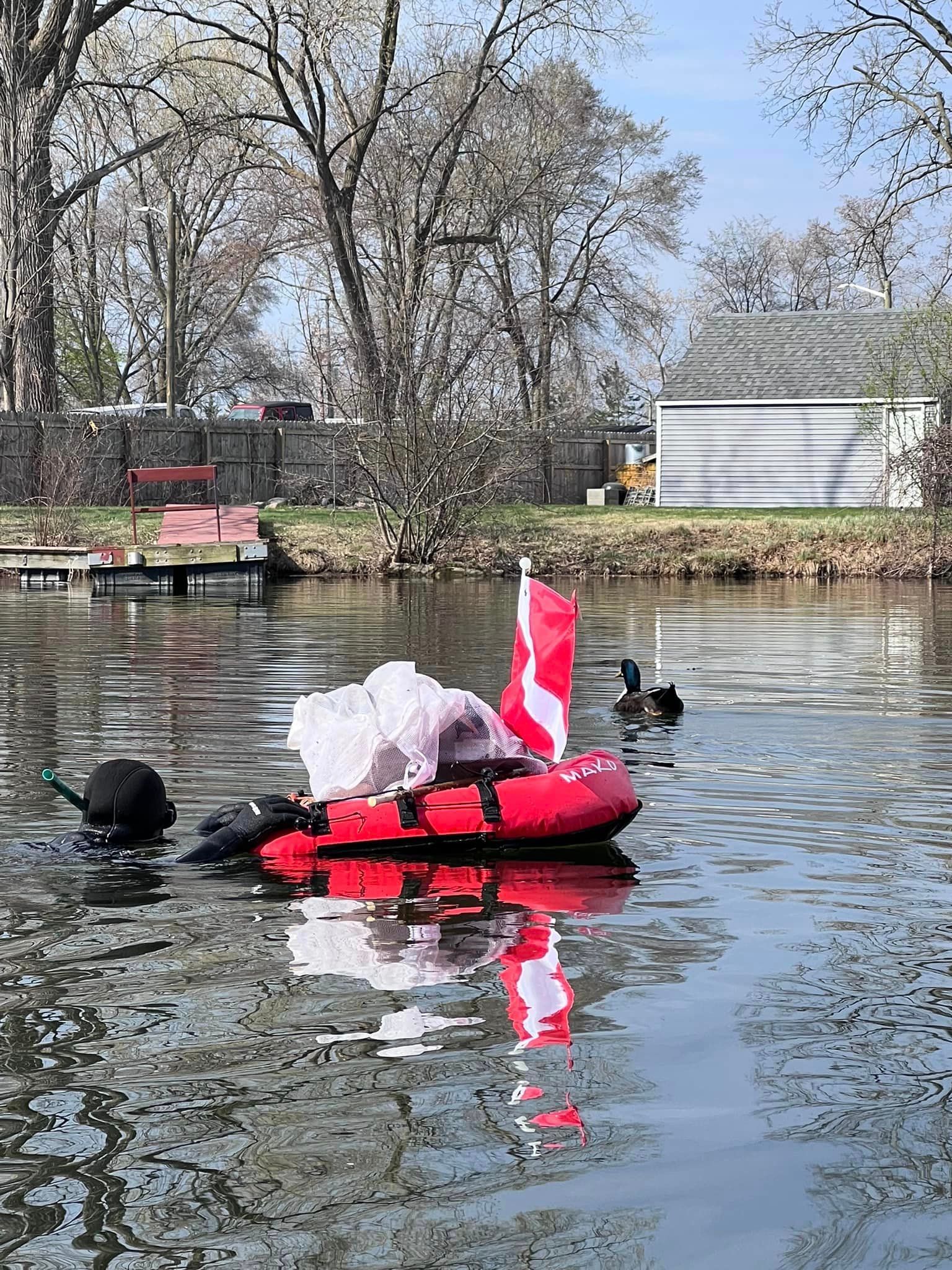On the Ground: Volunteers remove hundreds of pounds of trash from the Clinton River Watershed

Volunteers cleaned-up trash from in and around Dawsons Millpond in Pontiac.
On Saturday, April 15, 2023, 28 volunteers gathered at Beaudette Park in Pontiac, Michigan to take part in the Clinton River Watershed Clean-Up hosted by MUCC’s On the Ground (OTG) program and the Metro-West Steelheaders.
Once the clean-up started, volunteers broke off into smaller groups to remove trash from around the park including the forested shoreline of Dawsons Millpond which is part of the Clinton River Watershed. We lucked out with an 80-degree spring day so some volunteers waded into the water to remove trash including plastic bottles, treated lumber, and tangled fishing line.

Photo courtesy of Michigan Trash Divers
We were even joined by Michigan Trash Divers, a group dedicated to removing trash from Michigan’s waterways! They were able to collect tires, waterlogged couch cushions and a huge load of other trash from the bottom of the millpond which eventually flows into the Clinton River and then to Lake St. Clair.
This area is also known for great birding opportunities. During spring migration, many species of warblers and other migrating songbirds can be spotted in the park. The year-round open water at Dawsons Millpond also attracts many overwintering waterfowl. By removing trash from in and around the waterway, volunteers improved fish and wildlife habitat while also making the park a safer place for recreationists.
In total, volunteers removed 50 bags of trash from the Watershed, improving 33 acres of terrestrial and aquatic habitat.
For a list of upcoming On the Ground volunteer opportunities, please visit mucc.org/on-the-ground/. Our next river clean-up event will take place on July 15 on the Manistee River. Stay tuned for more details!
Recent Posts



